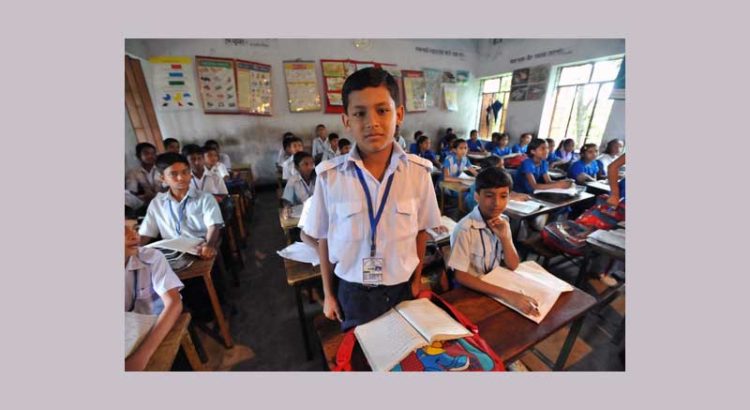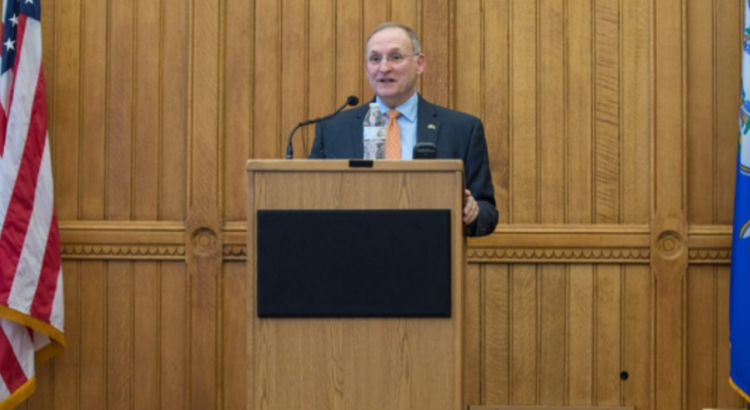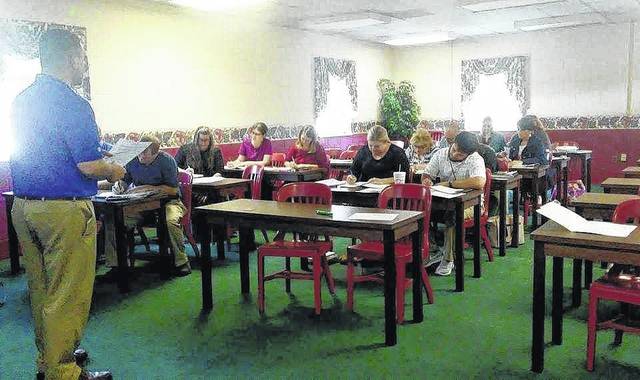EEUU/May 08, 2018/By CAMILLE PHILLIPS/Source: http://tpr.org
In 2004, the Texas Education Agency arbitrarily decided the state should shrink special education to 8.5 percent of the student population.
After conducting an investigation, the U.S. Department of Education said the effective cap illegally barred tens of thousands of children with disabilities from a free and appropriate education.
The state agency is trying to enact reforms to make up for breaking the law, but parents and advocates say it will take a lot to regain their trust.
“It’s really too little, too late. Especially (for) those children who needed early childhood intervention. You can’t get those years back,” said Jill Goolsby of San Antonio.
Five years ago, school officials told Goolsby her 3-year-old son Walker didn’t qualify for the free public preschool program for children with disabilities.
“I was told he definitely was not autistic because he was able to pretend that blocks were ice cubes. And I was told that a child with autism is not creative and cannot have any imaginative play, which is — that’s not true. But I did not know that at the time,” Goolsby said.
According to the Education Department, school districts across Texas delayed testing tens of thousands of kids like Walker, or shunted them to less intensive forms of support to meet TEA’s 8.5 percent benchmark.
By the time the benchmark was eliminated last year, advocates said a whole generation had aged out of the system.
“As a society, we will pay for them the rest of their lives, if we don’t get them back in the system and educate them,” said Karen Seal, a disability rights attorney in San Antonio. “The ones that are already out, how do we get them back, when there’s no mandate to do that?”
Seal thinks the Education Department should have punished Texas for breaking the law.
“But the problem with punitive is it’s usually monetary, and the last thing the schools need right now when it comes to special education is to lose money,” Seal said.
What the Education Department did, however, is tell TEA to do a better job monitoring school districts, and to make sure the children who were denied services are given the help they’re owed.
The department is currently reviewing TEA’s plan to meet those demands. It has three major parts: compensating families, training teachers and amping up the state’s monitoring team.
Deputy commissioner of academics Penny Schwinn said the first thing TEA will do is use federal dollars to hire 50 people.
“Unlike what Texas has done in the past, we want this monitoring team to be about review and support. So it’s going into districts, working with them as partners, families as partners, students as partners to really look at the compliance components,” Schwinn said.
Next school year, the plan calls for districts to begin finding the kids they missed and provide therapy and other compensatory services if they need it.
Goolsby welcomes the news, but said it won’t make up for her son Walker not getting help when he needed it. While she was able to get him into a private preschool, and had insurance to help cover therapy, she knows other families weren’t, and aren’t, so lucky.
“These kids have had bad years. It’s very hard to send them to an environment where you know they’re struggling and to try to turn around their mental attitude around school and their relationships with their peers,” Goolsby said.
Today, Walker is 8 years old and doing well. One of his favorite things to do is build Legos and make up stories about Lego guys.
His mother is grateful, but feels for all the kids who’ve missed out on years on intervention.
“I mean you can’t undo that. Those are consequences that are just going to be there,” Goolsby said.
She and her husband moved their four children across town to be close to a charter school that gives Walker and his younger brother Hayes special education services.
With so much to make up for, parents and advocates have mixed reactions to TEA’s special education plan. Their top concern: There won’t be enough money.
Kyle Piccola from the disability rights organization The Arc of Texas said the plan’s a big step in the right direction, but he’s worried TEA doesn’t mention anything about how expensive it will be.
“In my opinion they’d be able to provide an estimated guess, at the least,” Piccola said.
TEA has promised to ask for more money for special education in next year’s state budget, but Piccola said he it will be hard to get lawmakers to agree unless the agency provides an accurate picture of the cost.
“I don’t want you to hear that The Arc of Texas is giving a resounding gold star to TEA. Like I said, we are very cautious about moving forward, and we’re going to be keeping a watchful eye,” Piccola said.
Disability rights attorney Karen Seal is more skeptical, though. She wants a federal monitor.
“TEA, the one that broke the law, they’re saying okay, we know you robbed these kids of this education, now we want you to go in and take care of the problem,” Seal said.
TEA’s Penny Schwinn said the state agency is working to regain the trust of parents and advocates.
“We understand that there are some serious trust issues in the state related tospecial education, and that one of our responsibilities is to begin to right the ship on our end,” Schwinn said.
It’s hard to say how much oversight the Education Department will give TEA as it rolls out special education reform. The department declined multiple requests for an interview.
Camille Phillips can be reached at Camille@tpr.org or on Twitter @cmpcamille
Source:
http://tpr.org/post/texas-special-education-reform-comes-mountain-mistrust
Source:
http://tpr.org/post/texas-special-education-reform-comes-mountain-mistrust















 Users Today : 18
Users Today : 18 Total Users : 35460321
Total Users : 35460321 Views Today : 22
Views Today : 22 Total views : 3419050
Total views : 3419050